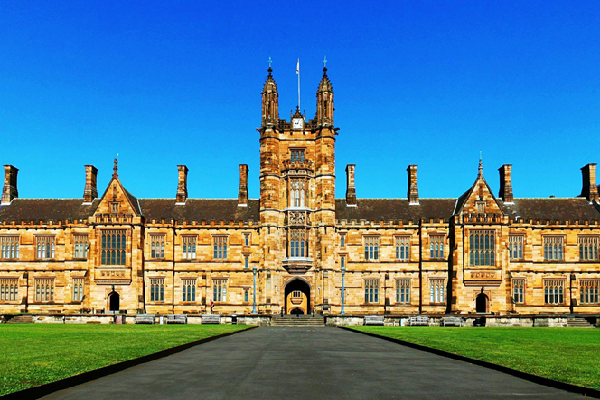University of Sydney: India visit to strengthen research and education partnerships
The University of Sydney’s Vice-Chancellor and President Professor Mark Scott travelled to India this week to participate in the Australia India Leadership Dialogue and further strengthen the University’s engagement with the nation.
On Saturday 3 September, Professor Scott departed for a week-long trip across India to meet institutional and industry partners – a reflection of the country’s vital importance to the University and to higher education in Australia.
It is Professor Scott’s first visit to India as the University’s 27th Vice-Chancellor. He was appointed to the role in 2021.
The trip includes the Australia India Leadership Dialogue on 6 September in New Delhi, where Professor Scott is one of 50 leaders invited from government, business, education, media and civil society in Australia and India to address the nations’ shared challenges and explore areas for cooperation, with an emphasis on emerging technology.
“At the University of Sydney, we deeply value our relationship with India and recognise the nation’s vital importance to Australia’s higher education sector,” said Professor Scott.
“Our community includes more than 700 students from India, many of whom continued their studies remotely during the pandemic. We’ve been delighted to see so many returning to our campuses this year. Despite the disruptions of COVID-19, we’ve seen our number of commencing students from India increase in 2022 and we look forward to welcoming more of these talented future leaders.
Despite the disruptions of COVID-19, we’ve seen our number of commencing students from India increase in 2022 and we look forward to welcoming more of these talented future leaders.
Professor Mark Scott AO, University of Sydney Vice-Chancellor and President
“The University has deep and longstanding connections with Indian institutions and scholars. Our researchers collaborate with colleagues in India on projects across health and medicine, environmental science, agriculture, engineering and business. There are opportunities to further expand these collaborations, working with Indian partners to address global challenges such as climate change and food security.
“At a time when international collaboration is more important than ever, our partnerships create opportunities for students and researchers from Australia and India, and foster innovations that benefit both nations.”
Sydney Scholars India Equity Scholarship
In New Delhi on 5 September, Professor Scott will meet prospective candidates for the Sydney Scholars India Equity Scholarship, a collaboration with the Asha Society that supports postgraduate studies in Sydney for residents of Delhi’s slum communities.
The current recipient, Tushar Joshi, is in the second year of his Master of International Relations. He recently completed an internship with the Australia India Institute.
In addition to the Sydney Scholars India Equity Scholarship, the University of Sydney offers a generous scholarship package for high-achieving students from India.
Research partnerships
The trip will see the University strengthen existing research partnerships and announce new agreements with Indian partners.
Currently more than 80 University researchers are working on joint projects across India in fields including health, environmental sciences, energy, sustainability, agriculture and entrepreneurship.
These partnerships offer students and researchers the chance to work internationally and develop global networks, and bring together the brightest minds across borders to tackle global challenges such as climate change, water shortages and air pollution.
Partners include Manipal Academy of Higher Education, Tata Institute of Social Sciences, Indian Institute of Technology Madras, OP Jindal Global University, Indian Institute of Technology Bombay, Tech Mahindra and Public Health Foundation of India.
Health education roundtable
The COVID-19 pandemic has highlighted the need for a strong public health workforce and globally competent health professionals. On 8 September the University will co-host a roundtable with the Public Health Foundation of India to discuss the challenges and opportunities in providing outstanding medical and public-health education to clinicians, public-health and other health professionals.
The roundtable will focus on the role of educational institutions in meeting future healthcare workforce needs and addressing the global burden of disease. Professor Scott will speak at the event, which will also include representatives from Manipal Academy of Higher Education, Datta Meghe Institute of Medical Sciences, Sri Ramachandra Institute of Higher Education and Mahatma Gandhi Mission Institute of Health Sciences.

